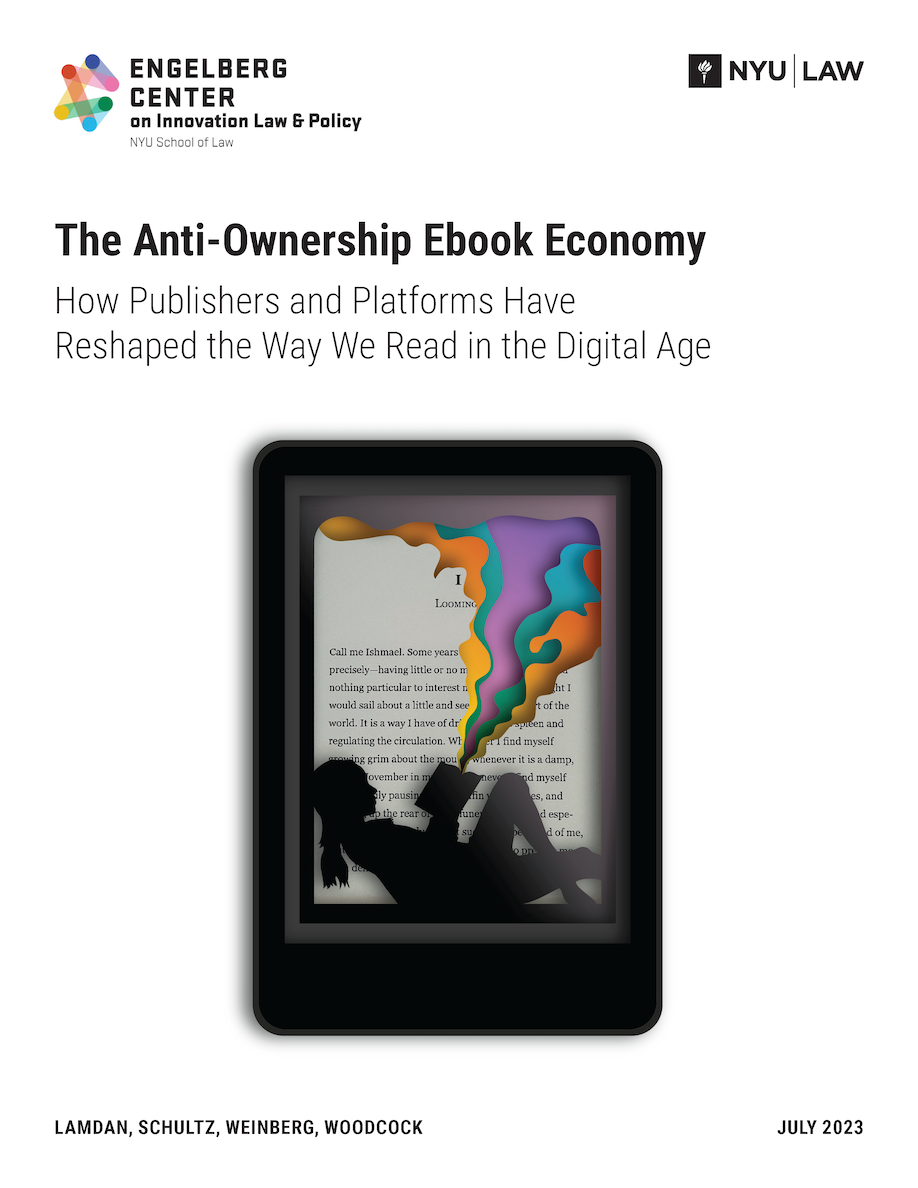Earlier this summer the Engelberg Center released a new study on ebook ownership. The study was motivated by a superficially simple question: “why can’t you own an ebook?”.
It is very easy to pay money to access an ebook. However, if you want to own that ebook - and own in the traditional sense of ownership, giving you the ability to resell it, or give it away, or simply read it without someone tracking what you are up to - in the vast majority of cases you are out of luck. Instead, your money will buy you a license that gives you access to the ebook on a specific platform under terms that prevent you from doing the ownership things I just mentioned.
This is a fairly well documented problem. In fact, one of my co-authors co-wrote an entire book about it. And another one of my co-authors wrote an entire other book touching on the surveillance aspects of these types of agreements.
What is less well documented is the source of the problem. There are a number of different stakeholders in the world of ebooks, including publishers, authors, ebook platforms, readers, and libraries. If you talk to any one of those stakeholders about this market dynamic, you will often get two things. First, you will get a fairly detailed description of the incentives and constraints that influence how they come to the ebook market. Second, you will get less detailed projections about the incentives and constraints that the other stakeholders bring to the market.
One goal of our investigation was to pull together all of the detailed first person descriptions of incentives and constraints in order to replace the less detailed projections.
You can read the report yourself to see if we succeeded. Instead of rehashing our findings, I wanted to use this post to flag one other thing that emerged during the investigation (I will probably touch on this other thing during the conference the Engelberg Center will be hosting on this topic later on this month - you should come!).
The thing that emerged was this: the key question of why ebooks are licensed instead of sold was a pretty obscure one. When we talked to stakeholders, many of them did not fully understand what we were asking at first (this was not the fault of my third co-author, who did an amazing job with these interviews). They often understood some of the second order ramifications of licensing over ownership, and might have some thoughts about how that decision connected to something else they were worried about. However, they were rarely fluent in the specifics of licensing vs sales itself, and often needed some time to deeply engage with the questions before providing in-depth answers.
I am not mentioning this to belittle any of the stakeholders we talked to, or even to suggest that they should be fluent in the limitations of licensing as compared to sales. Instead, I think it is noteworthy because this lack of familiarity with the concepts might present an opportunity.
One of the ideas guiding our investigation was that all of the stakeholders involved were responding in good faith to the incentives and constraints they faced. No one was twirling their mustaches trying to eliminate ownership as an end in and of itself. Instead, the current (non-optimal, at least in my view) licensing-based market structure was the result of an equilibrium between all of those incentives and constraints.
The fact that the specifics of licensing vs ownership were secondary to so many of those stakeholders may be a sign of hope because it suggests that it is rarely part of anyone’s primary incentives and constraints. They don’t care about licensing vs ownership as an end. It just happens to be that licensing has become part of the way they achieve their primary goals. That could mean that there are other equilibria that balance everyone’s incentives that do not require licensing instead of ownership.
How likely is that? I’m not sure. But I’ll take the hope where I can get it.
